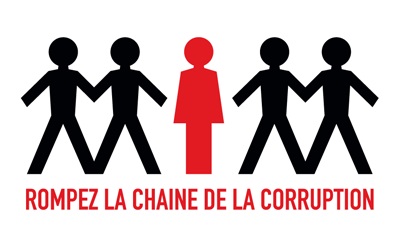On the occasion of the International Anti-Corruption Day, Transparency International published its report on this phenomenon that affects all countries and results in significant losses for the global economy.
A “serious crime that undermines economic and social development in all societies,” the UN reminds us, adding that “corruption contributes to instability and poverty.”
Corruption is multifaceted, leading to personal enrichment of the corrupt individual. Regardless of its form, it results in severe economic and social consequences. The nature and impacts of corruption worldwide are challenging to quantify, but some NGOs or international organizations like the IMF have provided an insight into the phenomenon.
Here are their findings, in three figures.
• $1,500 to $2,000 billion, is the cost of bribes paid each year globally, according to the IMF. This accounts for nearly 2% of the global GDP. Embezzlement of public funds would represent about $2,600 billion, which is more than 5% of the global GDP.*
• Between €179 and €990 billion (or 6.3% of the European GDP), this wide range is the estimated annual cost of corruption within the European Union.
These figures were published in 2016 by the European Parliament. According to this study, the cost of corruption in public markets is estimated at €5 billion per year. The countries most affected are Croatia, Cyprus, Lithuania, Romania, and Poland. The top three consist of Luxembourg, Sweden, and Belgium. France ranks fifth.
• 23rd, is France’s rank in the 2016 global ranking of the most corrupt countries, published by Transparency International.
In 2016, France scored 69, far behind the top three formed by Denmark (90), New Zealand (90), and Finland (89).
Overall, Transparency gives a alarming assessment: “The year 2016 showed that, worldwide, systemic corruption and social inequality reinforce each other, leading to popular disillusionment with the political world and providing a fertile ground for the rise of populist politicians.”


